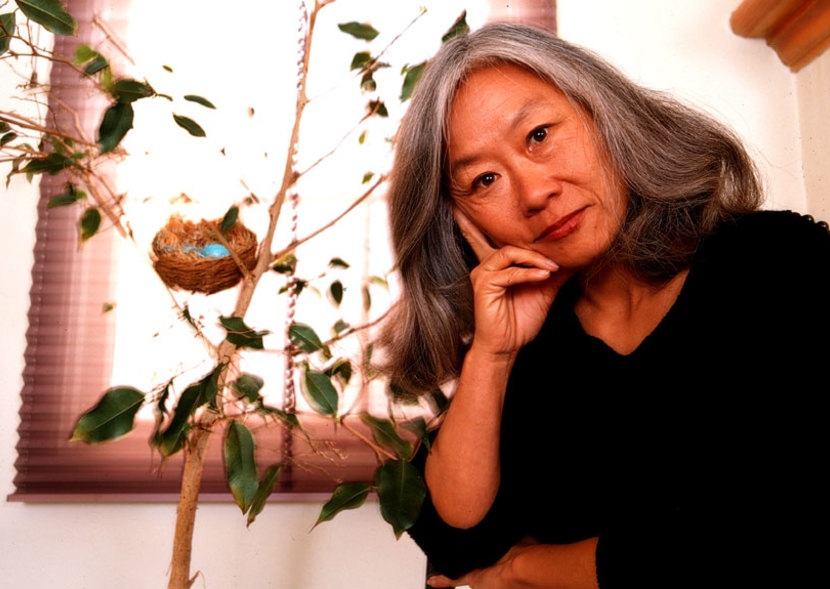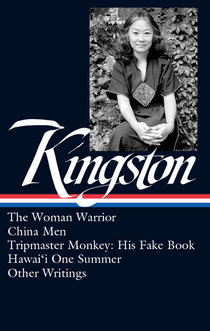
Major works:
The Woman Warrior • China Men • Tripmaster Monkey (His Fake Book) • The Fifth Book of Peace
“Since exploding onto the literary stage with The Woman Warrior, Maxine Hong Kingston has, in book after book, made words sing and soar, search and scorch. But she is more than a writer’s writer. She is writer as pioneer, writer as visionary, writer as bringer of peace. A champion, not so much of irony and wit as of love and compassion, she has often worked as much through aura as words—paradoxically cutting, as she does, a most singular and challenging swath. She is a gift to all, a national treasure and an American original.”
—Gish Jen
“A fiction writer ahead of her time, a poetess singing in the major key, and an intrepid trailblazer, Maxine Hong Kingston has made a space possible for so many people—women writers, Asian American writers, writers of color, and writers who dedicate their lives to literary activism. Kingston is a national treasure, and her work, along with work by some of the best writers America has ever produced, including James Baldwin, Toni Morrison and Grace Paley, will always offer hope and courage when darkness besets us.”
—Yiyun Li
“When I first read Kingston, in my late teens, I was drawn to the familiarity of it all: the immigrant enclave where anyone non-Chinese was called a ‘ghost,’ the cautionary folktales with the moral punch lines often lost in translation, the misunderstood silences. But what stayed with me was the realization that her characters weren’t merely trying to survive in this harsh, difficult world but to remake it through their fantasies and dreams. These characters emerged from their realist settings aching for impossible things, like peace, or world-changing art, or having all the friends in your lifetime in the same room at once, or Chinese parents and their American kids simply seeing eye to eye. At the time, it felt impossible to me that such grandiose, almost flamboyantly hopeful visions could emanate from characters who otherwise seemed so relatable to me. Her books open in darkness and trauma. But they always suggest the possibility of greater light.”
—Hua Hsu, The New Yorker
China Men
Maxine Hong KingstonOcean people are different from land people. The ocean never stops saying and asking into ears, which don’t sleep like eyes. Those who live by the sea examine the driftwood and glass balls that float from foreign ships. They let scores of invisible imps loose out of found bottles. In a scoop of salt water, they revive the dead blobs that have been beached in storms and tides: fins, whiskers, and gills unfold; mouths, eyes, and colors bloom and spread. Sometimes ocean people are given to understand the newness and oldness of the world; then all morning they try to keep that boundless joy like a little sun inside their chests. The ocean also makes its people know immensity.
They wonder what continents contain the ocean on its other side, what people live there. Hong Kong off the coast tugged like a moon at the Cantonese; curiosity had a land mass to fasten upon, and beyond Hong Kong, Taiwan, step by step a leading out. Cantonese travel, and they gamble.
But China has a long round coastline, and the northern people enclosed Peiping, only one hundred miles from the sea, with walls and made roads westward across the loess. The Gulf of Chihli has arms, and beyond, Korea, and beyond that, Japan. So the ocean and hunger and some other urge made Cantonese people explorers and Americans.
